#instinctual variant
Text
My full typology

MBTI: INFJ
Classic jungian: IN(F)
Enneagram: 6w5
Tritype: 621
Instinctual variant: sp/so
Temperament: Melancholic-Phlegmatic
Big 5 (SLOAN): RLOAI
Attitudinal Psyche: LEFV (most likely)
Not really sure about the rest rn. I will be adding to the list as I learn
#my typology#mbti#typology#typology stuff#classical jungian#enneagram#tritype#instinctual variant#temperament#big 5 sloan#attitudinal psyche
8 notes
·
View notes
Text
😊😊😊😊😊 https://enneasite.com/the-stackings/ 😊😊😊😊😊 mistyping begone 🤩🥳😇😘 here it is 😱🤗😳🤭🤫.. the answer we've been waiting for. 🤨😅👑😔💪🤓🤧
0 notes
Text
100% 5 AND 99% 4 HOLY SHIT??? higher than average percentages on 6 and 9 is so true aswell wow
source: advanced-personality.com
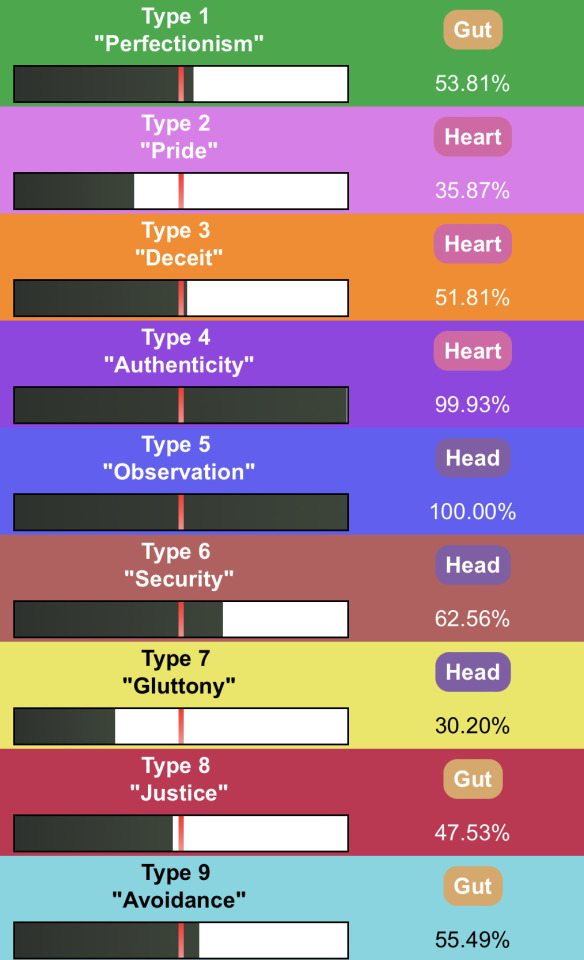
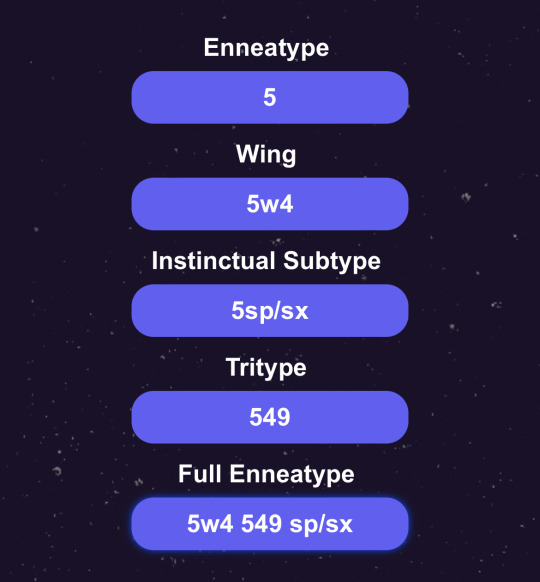
#typology#enneagram#btw for those who dont know me i have studied the enneagrams and i can confidently say i am a 5w4 sp/sx but im skeptical of tests so i was#pleasantly surprised to see this result#sleepy vix#5w4#enneagram 5#sp/sx#instinctual variants#also i did think i was a 549 tritype but my knowledge on tritypes wasnt veryyy strong but maybe i will pick up typology again#to study tritypes
81 notes
·
View notes
Text
Enneagram system
A rewrite/more in depth post of the Enneagram system compared to my last post on it. Not an expert. May change later.
If you like kpop and typology, check out my blog. I do type analysis on idols and typology notes.
___
What is Enneagram?
I mainly took notes from Riso Hudson theory.
A typology system that categorizes personalities into 9 different types. Each type is numbered from 1 - 9.
Each type has a desire and fear that motivates their actions in life.
Core and Wings
Core: Our main type. It is the foundation of our personality and does not change.
Wing: Acts as a complement to our core. Wing can be one of the two types that sit beside core type. E.g a core 2 can have a 1 wing (2w1) or 3 wing (2w3). But is not necessary to use since wings can change and/or can be balanced.
Levels of Development
Summary of healthy - unhealthy levels of personality
- Healthy levels -
Level 1: Liberation
Let go of self image so we are free to express ourselves however we want. Self acceptance of all traits.
Level 2: Pyschological Capacity
Begin to identify with positive qualities in our personalities and learn to improve ourselves with them.
Level 3: Social Value
Still strongly identify with our set self image and make effort to maintain image. Want to share our good talents and abilities to make a positive effect on self and others.
- Average levels -
Level 4: Imbalance/Social roles
Idealization of self image; have a major focus on either good or bad qualities, no in between. Fear is an obstacle here.
Level 5: Interpersonal Control
Insist on self image being accepted by others, which can cause conflict. Can lead to controlling and manipulation.
Level 6: Overcompensation
Overcompensate due to underlying negative feelings. Desperate for others' acceptance.
- Unhealthy levels -
Level 7: Violation
Desperation for acceptance leads to violation of one's self and others. Serious conflict can occur. May victimize themselves to excuse offensive actions.
Level 8: Obsession and Compulsion
May be overly obsessed with an image of who they want to be. Deceives others
Level 9: Pathological Destructiveness
Most unhealthy state, display very toxic traits and behaviours, may have mental breakdown
Disintegration vs Integration
Or basically Stress vs Growth
Disintegration: When under heavy amounts of stress, a type will go into their disintegration type. They will pick up the negative traits of that type and act like the unhealthy version of it.
Integration: When maturing/developing positively, a type will go their integration type. They will pick up the positive traits of that type and improve their character.
___
* I will only give short descriptions for the triads. I will explain more in depth in individual posts.*
Centers of Intelligence
There are 3 centers of intelligence. Each center shows how and why we solve issues in life.
Gut/Instinct/Anger (types 1, 8, 9)
Gut center focuses on reacting and taking action immediately. This triad has an issue with control and anger.
1: Often perfectionists who repress their anger in order to remain morally good. They see their anger in a negative light.
8: The most open and comfortable with their anger. Uses it to assert boundaries, especially since this type fears vulnerability.
9: Often a passive type that dismisses or downplays their anger. They fear conflict and may worry being more assertive will cause a negative effect on themselves and others.
Heart/Image/Shame (types 2, 3, 4)
Heart center focuses on self identity and connections. This triad wants love and recognition and do what they believe is best to get that. They struggle with self worth.
2: They want to be needed and helpful to others. Pride themselves on being of service. Wants to receive love and to give love.
3: The most image oriented type. They always try to show their best selves and best efforts in order to seem admirable. Fears being worthless.
4: Wants to create a unique image for themselves, believes being boring will make them unloveable.
Head/Thinking/Fear (types 5, 6, 7)
Head center focuses on ideas, making rational decisions, and gathering info. This triad deals with fear and uncertainty.
5: The most internalized head type. 5's want to gather as much knowledge and resources as possible in order to stay secure and independent.
6: Quite an anxious type who seeks security through relations with others.
7: This type fears pain and suffering and seek out experiences in order to avoid negativity.
___
Other triads
- Harmonic Triads -
How types handle conflict, coping mechanism
Reactive (4, 6, 8)
Reactive types are not afraid to show and speak about their true feelings. They may seem "dramatic" in a way.
4: Melodramatic and self absorbed in negative feelings, drowns in intensity
6: Will argue, stick up for the right thing, moody, anxious
8: Big and loud reactions, can be very fiery
Positive (2, 7, 9)
Positive types dislike negativity and conflict and have their own ways of avoiding such tension. Optimistic during hard times.
2: Actively tries to be a good and kind person, only tries to focus on the good aspects of people
7: Seeks out fun opportunities to make their life exciting (basically distraction)
9: Values harmony and peace, will not risk any type of action that will disturb these values
Competency (1, 3, 5)
Competent types are often perfectionists who want to show their best selves. Objective and rational.
1: Strives to be correct and right, wants to be precise in what they do
3: Represses softer emotions to keep up a certain image, thrives with work/passions so they can be the best at what they do
5: Detached from feelings to remain logical and objective, knowledge seeking
- Hornevian Triads -
Relationships with others, how they get what they want
Assertive (3, 7, 8)
Assertive types go against people to get what they want. Do not back down easily, can seem aggressive and forceful.
3: Pushes through obstacles for achievements, goal oriented
7: Asserts their right to have fun, refuse to be restricted
8: Asserts power and strength, places boundaries
Withdrawn (4, 5, 9)
Withdrawn types are very internalized and do not show their needs openly. Deals with things alone.
4: Feels something is wrong with them internally, feels misunderstood
5: Detached from others as to not drain their own energy, will figure it out themselves
9: Introspective, lets life happen
Compliant (1, 2, 6)
Compliant work with people to get what they want. Builds relationships for security, wants to be helpful to others.
1: Doing the right thing instead of one's own wants
2: Focus on other's needs more instead of self
6: Tries to build a safe and secure environment by getting ppl to work together
- Object Relations -
How we are affected by others, our own affect on others, how we react to personal wounds
Attachment (3, 6, 9)
Seek out bonds and companionships for particular reasons. Individuality vs adaptation.
3: Changes their image to suit whoever they are with in order to meet expectations
6: Creates support systems to help with their self doubt and indecisiveness
9: Adapts to the energy of the environment to keep harmony
Frustration (1, 4, 7)
Triad gets frustrated when their needs aren't met.
1: Has a need to improve every little imperfection they find
4: Dislikes shallowness, longs for depth and complexity
7: Not enjoying experiences, not feeling fulfilled
Rejection (2, 5, 8)
Their own needs feel unimportant to others, so they reject their own needs as well.
2: Rejects the need to receive love and guidance, instead focuses on connecting with others and helping them.
5: Ignores and minimizes all their needs, offers knowledge and expertise in some hope of being acknowledged for their intelligence.
8: Rejects by being never putting their guard down, wanting to appear strong and as the protector of others.
___
Subtypes
Claudio Naranjo theory
There are three subtypes/instinctual variants that show our drive in life. There are 27 different subtypes in total.
Self Preservation (Sp)
Focuses on physical safety and security. Our physical health, financial security, obligations, and comforts.
Sexual/One - on - one (Sx)
Wants intensity and deep connections, one on one relationships are preferred.
Social (So)
Prefers to be in a community, wants to create good connections and bonds with others. Socially aware, focus on group goals and contributions.
___
Tritype
Katherine Fauvre theory
A minor but still interesting piece of Enneagram. Tritype is formed of your 3 dominant types from each center. The first number will always be your core, followed by your other 2 dominant types.
E.g 369. 3 = core, heart. 6 = head. 9 = gut.
___
Enneagram notes
___
Side blog:
Kpop astrology @rainy-astrology
Kpop fanarts @rainy-artworks
#enneagram#enneagram types#typology#mbti#enneagram notes#tritypes#triads#enneagram triads#instinctual variants#subtypes#enneagram personality#personality theory#enneagram 1#enneagram 2#enneagram 3#enneagram 4#enneagram 5#enneagram 6#enneagram 7#enneagram 8#enneagram 9#integration#disintegration#stress#growth
99 notes
·
View notes
Text
I must lament how terribly lacking in CONTEXT most ppl’s typology is.
In an environment of scarcity, war and/or isolation, sp means being aggressive. In civilized societies, and with tribes who meet your survival needs, sp usually means the opposite. Because you don’t want your boss to fire you or to be considered a problem to the tribe that feeds you and shelters you.
All sp-doms carefully track where their resources and survival needs come from. The sp-instinct is wired towards meeting base survival needs. The sp-instinct is wired against doing anything that jeapordizes one’s physical health and survival. Sp-doms will fixate upon these base, physical survival needs even if their base needs are already met and they don’t need to fixate on them. They’ll worry about losing their job, losing their income stream, not having enough income and resource security and health in the future, etc. sp doms will neuroticise about resources, health and base survival even it is at the expense of pursuing what they really like viscerally (sx), or at the expense of carving out their desired social identity (soc).
a person like this, regardless of their second instinct, is not going to be chronically edgy. They are going to fear alienating people unless they truly need nobody for their survival needs to be met, both short term and long term. They are going to fear making enemies for this threatens base survival needs. Sx and soc, on the other hand, have actual incentives to be edgy. Sx has an incentive because being brash can mean expressing what you like and dislike, which is the whole thing sx wants to do. Soc has an incentive to be edgy and rude because polarizing can be a tool in carving out your social identity and your desired place among others. Sp only has an incentive to be aggressive and polarizing if the environment tangibly rewards it with resources… which it rarely does. There are exceptional cases where you can get paid to be edgy and polarizing in this society, but these are the exception and not the rule. Often these roles are filled by lucky sp-blinds anyway, who happened to find themselves in wealth despite not seeking it as their goal.
Why are these such a difficult concepts? Why do I still see people pushing the “soc-blinds are edgy and speak their minds” rubbish?
#Literally no one who characterizes sp as chronically edgy is an sp dom.#enneagram#IV#instinctual variants#typology#sp/sx#sp/so#sx/sp#sx/so#so/sp#so/sx
59 notes
·
View notes
Text
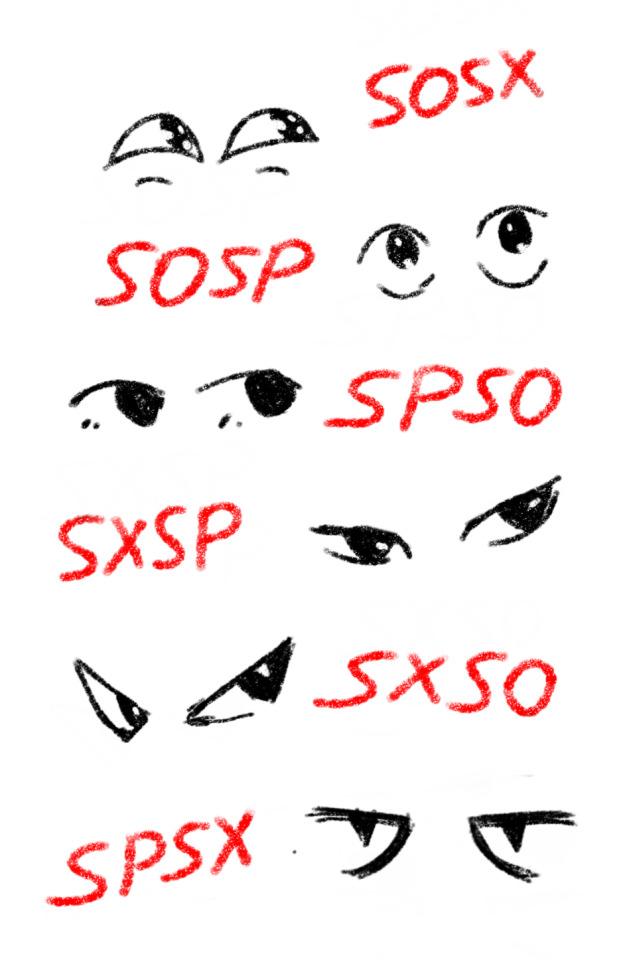
Here's my version. Im right
#enneagram#mine#instinctual variants#instinct#personality types#mbti#mbti personality types#contraflow#sxso#sxsp#spso#sosp#sosx#spsx#visual typing
156 notes
·
View notes
Text
Instinctual Variant -4
Social Instinct:
Social Instinct is all about connections. The need to establish a social group and be a part of one where people have similar interests.
Some really common attributes found within people who have the So instinct include:
The need for social acceptance. Don't mistake this for neediness, it's just that they understand the value of community a lot better than so-blinds.
Connecting with people through ideas, thoughts. This also includes one-one connections. A lot of times, people mistake the need for connection to be an Sx thing, especially when it is one-one. However, the Sx energy is purely attraction. Sx-users crave for a certain "high" that Sx-blinds, or predominant So-users can put aside. So-users connect with people through similarities, unlike So-blinds or Sx users, who don't usually care much about them.
Merging with cultures. A So-user is more likely to merge with the culture that they are surrounded by.
Having a hard time accepting oddballs. As much as this sounds wrong, a lot of so-users do have trouble accepting oddballs. Since their brains are conditioned to accept commonness, and create an environment where they could be with people who have similar interests, it is kind of difficult for them to accept those who don't believe in the same. (But that doesn't mean they are evil)
Understanding social constructs. They are aware that social niceness is a key requirement for a functional society. (Basically, more aware of their surrounding, and their community to make sure that they continue to fit in)
Most people are So-users. Which makes sense, since we live in a world where society, and community is given higher importance.
So/Sp users generally tend to have a more "politician" vibe to them, since they have learnt how to play with their community to satisfy their physical/materialistic needs. Sp being in the auxiliary position here also means that they are going to be concerned a bit more about their materialistic needs to fit within the social circle they're a part of. This means that they are more likely to:
Be more concerned about how much money they have, how they look, what they eat. Especially if it means being in a better social circle.
Bond with people based on their materialistic or financial desires and requirements.
Enforce ideas within their community to make it easy for them to attain their sp requirements.
Are more likely to abide to social rules than So/Sx users, since they lack the need, or aren't really aware of their need or desire to merge, or get fixated on the Sx energy.
They also tend to be a bit more traditional in their way of thinking, and would stick to rules, and ideas that have always worked.
So/Sx user, on the other hand tend to have the "wild neighbor with crazy amount of friends" vibe to them. Thanks to their Sx, they seem to have their own flair. However, they'd use this Sx to merge with people within their So community. This means that they're a lot less reckless than Sx/So users when it comes to pursuing the Sx energy. If a So/Sx user realizes that the Sx they choose to pursue would hurt their position within the circle they are a part of, they would immediately stop. Some other things that I've noticed is that:
Very poor sp. A So/Sx acquaintance of mine choose to party till 3am in the middle of the week with their boss to become his "best friend" and get into the inner circle. An So/Sp would never take this crazy approach, because they value their sp needs.
Their ability to make everyone fit into a community. So/Sx users, for some amazing reason love it when they can fit everyone into the community they are a part of. I think it is the perfect combination of being able to match the Sx energy and communicate and uphold So ideas.
Tend to come off as flaky. I guess this is once again because of their need to merge, and socially connect with everyone around them. And since Sx isn't really their priority, it's like partially digging the ground for gold and then finding a shiny object two feet away.
Struggle with taking care of their physical needs. Like every sp-blind person, they really think they can party till 5am and then get to work at 8, without having anything to eat.
45 notes
·
View notes
Text
Subtype Trait Structures: sp5
Retentiveness
The conservation E5 keeps their emotions and thoughts to themselves. This subtype has learned to be self-sufficient, since he does not expect much from the world. They stick to themselves, being pessimistic about receiving care and protection, or being able to take what they need.
Not Giving
This subtype has the fantasy that, by giving, it will lose what little it has. The conservation E5 fears commitment, since it implies a debt that he does not feel capable of satisfying. He wants to be completely free, without obstacles, without ties to anyone. They do not feel like they have much to give.
Detachment
The conservation E5 withdraws from the world; detachment is a form of withdrawal. They do not feel the need to relate, nor are they interested. Deep down, they fear not being capable of filling the other's expectations.
Fear of Being Swallowed
The conservation E5 has the most difficulty with setting limits of the E5 subtypes. He feels used and abused, confirming his disappointment with the world. Anger is not expressed, rather, this subtype chooses to disappear. They protect their private space as much as possible, being susceptible to invasion.
Excessively Docile
Over-docility leads this subtype to interfere with his own spontaneity and with his preferences. This over-docility would not be possible without a strongly repressed need for love.
Self-sufficient
The conservation E5 is independent, due to the fear of being swallowed, and due to the belief that he does not have much to give. He does not ask for help; the world is not to be trusted. This mistrust originated from the primary relationship with the caregivers, who did not respond adequately to the person. Experiencing great frustration when not being able to support others, the conservation E5 chooses to retire from relationships. Despite his self-sufficiency, his material life is often lacking, because he does not need much either. This subtype can choose low-paying jobs because he values independence above all else.
Emotionally Insensitive
Despite being sensitive, the conservation E5 buries his emotions, and nobody knows about them. He has “learned” that what happens to him is not relevant, and that showing emotions will cause discomfort. He can forget how he feels, leading to anhedonia. It is difficult to express emotions.
Orientation to Knowledge
Knowledge becomes a safeguard in the face of the world. It can be a way of relating to the other. Knowledge brings order and analysis to chaos. Everything is safer in the mind, where he is completely free and autonomous.
Strangeness
Suppressing feelings and avoiding life impoverishes the experiences of the conservation E5. He feels empty on the inside. He describes it as an existential desert. This feeling of living dead is due to the disconnection with the body and the emotions. It is also a feeling of strangeness that makes him feel lost, like a weirdo on the planet. He does not feel belonging to this world.
Guilt
The conservation E5 feels guilt for existing, as if he did not deserve life, as if his existence was a mistake. This subtype will blame himself for everything. By embracing a detached indifference, they feel guilty. Guilt can manifest as a vague sense of inferiority, a vulnerability to intimidation, and shyness.
Self-demanding
This subtype is a perfectionist who feels like a “loser.” He is very demanding of himself, and over-analyzing his actions leads to a sense of lack.
Negativism
The conservation E5 is an oppositionist and a rebel on the inside. His anger manifests as passive-aggression. They can be forgetful and evasive. He does not like being told what to do.
Hypersensitivity
Hypersensitivity is an introverted disposition. This subtype feels unprotected against environmental stimuli. Emotional numbness is a way to protect against overstimulation. He does not want to interfere with the world; he does not want to harm or interfere. The most obvious manifestation of sensitivity and compassion will be towards nature and animals.
Renunciation of Action
The conservation E5 tends to procrastinate. Inaction can manifest as non-commitment, passivity, and apathy. Inaction can be the result of wanting to keep his intentions hidden.
Source: PDB Wiki
#personality theory#personality types#typology#enneagram#enneagram subtypes#instinctual variants#enneagram 5#type 5#5w4#5w6#sp5#intj#intp#istj
96 notes
·
View notes
Text
people often mistake self care in any form or shape as inherently equivalent to self preservation instinct. it's not.
sp is primarily concerned with survival and resource needs. most of the time, self care will only become a concern when it's the necessary resource or a tool to resource gathering. otherwise, it's a waste of time and energy and hardly will become a concern.
a sp who doesn't rely on their looks for survival will probably not invest time in money in extensive beauty care. a sp with no signs of illness of fragile health state won't probably be concerned about eating and exercising much. a sp whose mental health do not affect their productivity may not be concerned about health care management.
11 notes
·
View notes
Text
Instinctual stack: sexual
Sx is about having a strong awareness of your own genetic fingerprint. Whether it’s sx-dom or sx-aux. An intuitive grasp of how to present the ME-ness, or the SELF-ness. Also neuroticism with being considered sexually attractive hence shooting yourself in the foot when there’s someone you actually like. An sx-user likely has a precise explanation of what a tattoo expresses in terms of being deeply personal. An sx-blind might explain they simply liked it, or how it was a rite of passage of sorts (thereby having connected to their weak sx).
It’s not about “looking pretty” or “looking sexy”. Cher (sx/sp) wearing crop tops throughout her entire career, when it wasn’t fashionable whatsoever. Amy Winehouse (sx/soc) and her fifties pin up look singing jazz when neither of that was fashionable. Kate Bush (so/sx) whose expression and musical style paved the way for others. In a way, sx is about expressing your genes. As a rule of thumb, sx-blinds are more attractive in the conventional sense compared to sx-dom: Henry Cavill and Sam Heughan sp/soc and David Bowie or Mick Jagger sx/soc. Megan Fox is not an sx-dom, rather soc/sp with a lot of movie industry sexy going on, compare with P!nk sp/sx.
52 notes
·
View notes
Text
Most common enneagram mistypes (also by instinctual subtype) and short explanation for mistype
Type 1
In general: E3 (focus on competence), E4 (when unhealthy), E5 (focus on competence)
Sx1 (countertype): E8 (both have a forceful nature)
Type 2
In general: E9 (positive attitude)
Sp2 (countertype): E7 (positive attitude; childish disposition)
Type 3
In general: E1 (focus on competence), E5 (focus on competence)
So3 and Sx3: E8 (assertive attitude)
Type 4
In general: E2 (especially when unhealthy), E3 (especially with 3 wing), Enneagram 5 (withdrawn stance; especially with 5 wing), E9 (withdrawn stance)
Sx4: E8 (reactive triad; might mistype due to forceful nature)
Type 5
In general: E1 (focus on competence), E4 (withdrawn stance; especially with wing 5 or if sx subtype), E9 (withdrawn stance)
Type 6
Sp 6: E2 (dependent stance), E5 (especially with a 5 wing), E9 (attachment triad)
So 6: E1 (dependent stance), E3 (attachment triad; especially when unhealthy)
Sx 6 (countertype): E3 (attachment triad; especially when unhealthy), E4 (reactive triad), E7 (especially with 7 wing), E8 (reactive triad)
Type 7
In general: E3 (assertive attitude), E4 (frustration triad), E8 (assertive attitude)
So 7 (countertype): E2 (positive attitude; they both have a self-sacrificing nature which may be the cause of mistype)
Type 8
In general: E3 (assertive attitude), E7 (assertive attitude
Type 9
In general: E2 (positive attitude; especially if social subtype), E4 (withdrawn stance), E5 (withdrawn stance), E7 (positive attitude)
Main sources: Naranjo, Hudson and Riso, Beatrice Chestnut
Remember to always check basic needs/passions/desires when in doubt between two enneatypes! Enneagram is not as much as outward behavior as it is about your internal feelings. Checking integration/disintegration patters can also be useful.
Hope this helps someone! :)
#enneagram#enneatypes#mistype#typology#psychology#enneagram 1#enneagram 2#enneagram 3#enneagram 4#enneagram 5#enneagram 6#enneagram 7#enneagram 8#enneagram 9#tritype#instinctual variants#instinctual subtypes#naranjo#hudson and riso#beatrice chestnut
127 notes
·
View notes
Text
need a typology mf to tell me if my type is contradictory or not , ESTP sp/sx 7w8 738 SEE choleric-sanguine SCOEI VFLE ES(T)
also on the hunt for typology moots u guys are rare and elusive like a silverback gorilla
#here comes the tags#typology#personality types#mbti#enneagram#instinctual variants#big 5#looking for moots#enneagram 7#e7#sp/sx#estp
15 notes
·
View notes
Text
Random E2 rant
So is it me or has there been a sudden influx in female characters getting typed as E2. Sure I do think that there are some characters that were mistyped.
Ex- Daenerys being typed as Sx1 being an Soc 2, Mistao Katsuragi typed as an Sx 7 being an Sx 2 and Maddy Perez being typed as an Sp7 being an Sx2.
However is it me or is it getting a bit out of hand now? like maybe its me reaching here but isnt there like a bit of a weird undertone considering its only been female characters getting this treatment. This are the charcaters I've noticed
Maxine Minx (3w4 so/sx) as 2w3 sx/so
Jennifer Check (3w2 sx/so maybe 8w7 sx/sp) as 2w3 sx/so
Asuka Langley (3w4 so/sx) as 2w3 sx/so
Regina George (3w2 so/sx) as 2w3 so/sx
Dani Clayton (7w6 so/sx) as 2w1 so/sx
Mileena (8w7 sx/so) as 2w3 sx/so
Carla Roson (6w5 sx/so) as 2w3 so/sx or 2w1 sx/so
Leia Organa (8w9 so/sp) as 2w1 so/sp
Cersi Lannister (8w9 sp/sx) as 2w3 sp/sx
Katherine Pierce (8w7 sp/sx) as 2w3 sx/sp
Jill Roberts (3w2 so/sx) as 2w3 sx/so
Peach Sallinger (3w2 sx/so) as 2w3 sx/sp
Shiv Roy (3w4 so/sp) as 2w3 so/sp
Amy March (3w4 so/sp) as 2w3 sp/so
Esmeralda (8w7 so/sx) as 2w3 so/sx
Harley Quinn (7w6 sx/so) as 2w3 sx/so
Deandra Reynolds (3w4 so/sp) as 2w3 sx/so
Debbie Jelinsky (3w2 so/sx) as 2w3 sx/so
Lady D (3w2 sx/so) as 2w3 sx/so
Id love to hear your guy’s thoughts on this cuz its been a pattern I've noticed and it's definitely getting a bit out of hand now. I personally disagree with almost if not all of these typings; there are some others I've seen but are not as outragous as some of these.
#mbti#zodiac#zodic signs#personality types#16 personalities#ennegram#mbti personality types#enneagram#typology#personality typology#enneagram 2#2w3#2w1#subtypes#instinctual variants#x movie#maxine minx#jill roberts#mortal kombat#mileena#carla rosón caleruega#peach salinger#katherine pierce#Star Wars#leia organa#Regina George#jennifers body#jennifer check#asuka langley soryu#cersie lannister
26 notes
·
View notes
Text
many people who use typology have never engaged with reality and it shows. Let me go through the two main, sadly very common mentalities which expose you as a retard who doesn't understand the real world.
"you cant develop your blindspot." Whether you can or can't develop the ability to properly give a shit about your blindspot... life is going to force you to at least pretend you care about your blindspot and fake it til you make it. otherwise you literally die. People are forced by the world to either enact their blindspot to survive (causing dumb typologers to mistype ppl as their blindspot), or perish. This especially applies if your blindspot is soc or sp. sp-blinds have to pay the bills, clean their rooms and develop a stable routine that nurtures their bodies and souls, despite their apathy towards their financial status and their personal comforts. soc-blinds have to sell a social image of themselves to get a job and then further develop an image as someone reliable if they want to get better pay, despite their apathy towards their social status. there is something in all our lives which demands us to engage our blindspot and if we dont step up, we lose at life.
"Socs are nice and groupthinky and soc blinds are mean and edgy and individualistic" shows me you're sp-blind, probably a 4 and/or 5 fix obsessed with your wet dream of how much more individualistic than thou you are too. if you think soc-blind is about being mean, you don't understand the slightest thing about what an sp-haver and a soc-blind actually thinks. I question if anyone who thinks this way has ever actually tried to provide for themselves in the sp way.
sp is about AVOIDING risks and staying stable. To hold down a job and be economically stable in the safest way possible -- what sp is about -- the method is to be to be fucking nice to people and keep your head down so that you aren't deemed Bad For Corporate Image and cut off from your stream of income. to maintain your sp comforts rather than deal with the DANGER (thing sp avoids) of them being threatened, you have to not piss people off. It baffles me that so called sp-havers don't know this and go around assuming that anyone who is kind and bearable must be some sort of soc. the concept of "being nice to avoid conflict and protect myself" is foreign to these so-called sp-havers, which reeks of sp-blindness. Sp-dom is always aware of threats to their sp needs and doesn't want to drag needless conflict into their lives that could risk their financial stability and comfy routines. Sp-doms are those people who fearfully and resentfully keep their social media image as plain and as milquetoast as possible, so that their corporate job doesn't fire them. Yes even sp/sx does this, tho we struggle to tame ourselves more than sp/so because of the explosiveness of sx... we still do it. I have kept my internet rage anonymous for years and am only just decompartmentalizing my life and developing the courage to be myself on the internet with my true face because I feared losing my job over it, for years. Sp is about this soulless pragmatism. It is aligned with type 6 (soc is aligned with type 3 and sx is aligned with type 9), so even if you're not a 6 or 6 fix, having sp will add 6-like traits to you. the wimpiness and cowardice of sp (gotta keep my head down so my employers keep paying me!) applies to ppl even if they are assertive types... The only conflict sp-doms will engage in is around their resources, and in modern society the best way to get resources is almost never conflict, it is through (unfortunately) keeping your head down and shutting up so that you are hireable. almost ALL sp-doms know this. so they train themselves to be nice, and will seldom be cunts. because it is most safe + profitable to be nice. it is low risk to be nice. so sp-doms like being nice. yes we will be grumpy and low energy if you fuck with our routines and other sp things. but we are fundamentally NOT edgy (at least compared to our sx and soc siblings of the same enneatype) because starting conflict is risky and thats the antithesis of sp.
Soc is the instinct about status and showing off and shining your image to the world. Socs all have 3-like traits even if they don't have any 3 in their enneatype. they are the ones who enjoy engaging in social drama and being socially mean and petty, because this is an avenue to attain status and peacock your social role in the community and define who you are to others. This trait can be used for better or worse.
#enneagram#instinctual variants#typology#iv#instinctual blindspot#soc blind#sp blind#sx blind#sp/sx#sp/so#so/sp#so/sx#sx/so#sx/sp
66 notes
·
View notes
Text
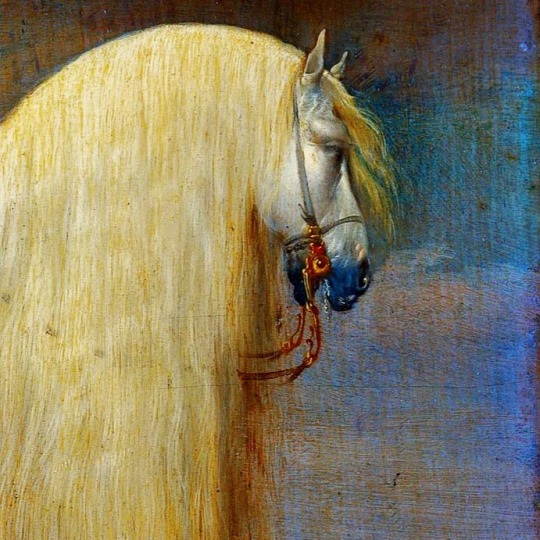
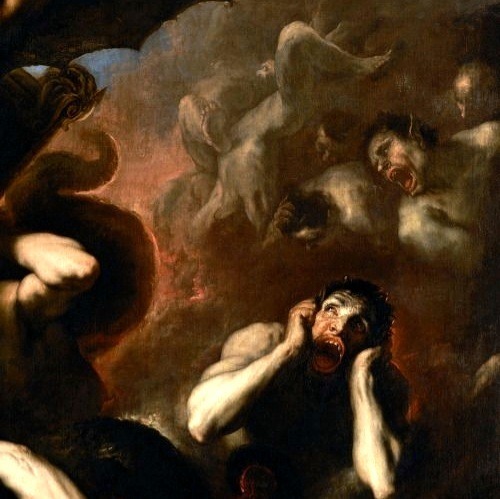
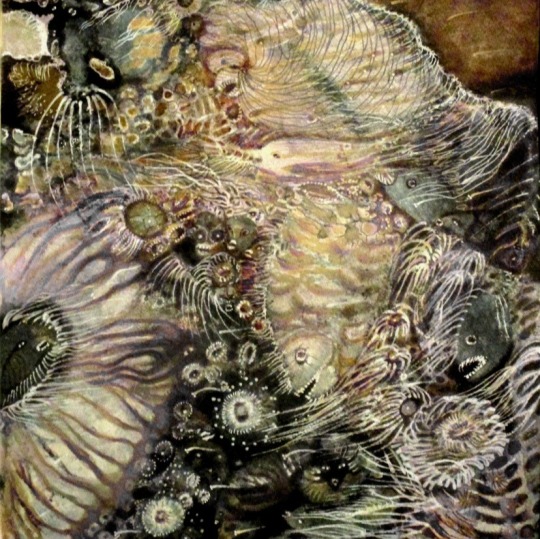
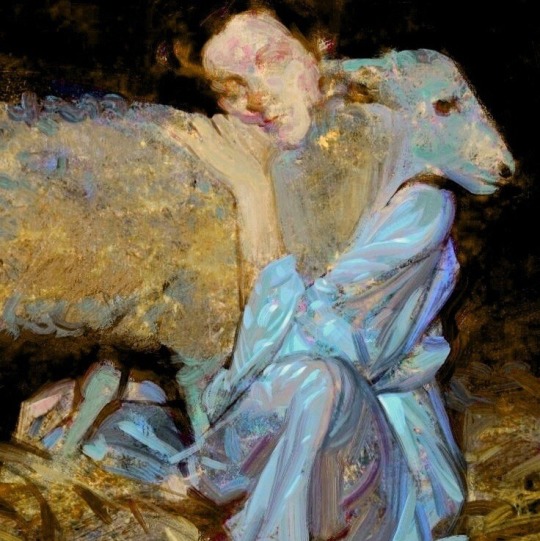
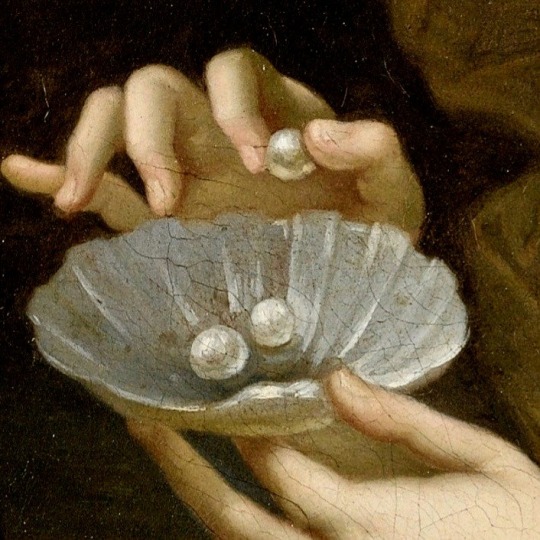
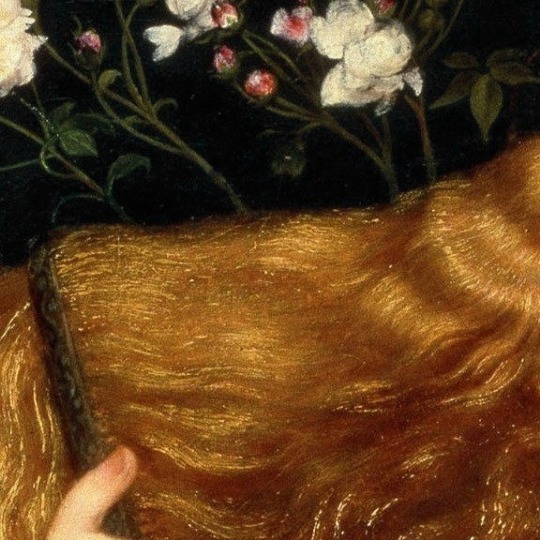
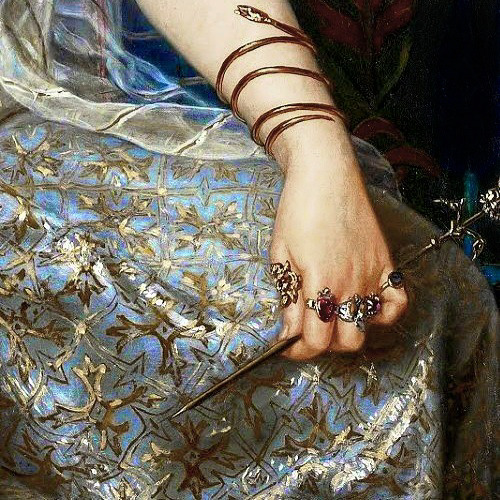
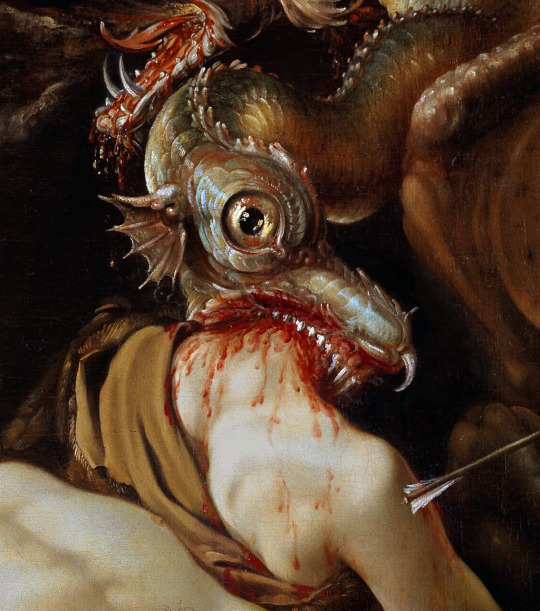

Infj 3w2 sosp 317
#mine#instinct#instinctual variants#enneagram#personality types#mbti#moodboard#aesthetic#this is for an oc :3c#this is also exactly lestats type tho#except for infj I think lestat is Enfj#so i rly like how well this fits him either way sgshqg#iwtv is sooo iconic watch it
102 notes
·
View notes
Text
Enneagram Instinctual Variants Write-Up (03/12/2022)
The following is merely a port of an entry I wrote in my diary in an attempt to understand my instinctual variant stack, which then evolved into a brief extrapolation of what I believe the instincts truly are. Nothing more.
If I conceptually understand the instincts, then even replication of each one should be relatively easy. Further, though I wish to know my instincts, it's a relatively useless concept that is more in the realm of spirituality than psychology. That is—it seeks to explain that which isolates humanity from any other animal, as well as that which keeps it in the kingdom of animalia. The question of old, "do humans have souls?" It seeks to derive from your interpersonal influence, as well as our drives fundamentally. If I avoid the use of instinct, readily this becomes somewhat akin to a, "soul journey," or that which spiritualists may describe as your "karmic path". The dominant instinct being that which is safe, what you know and what you are drawn towards the most. With the auxiliary, a ~~function~~ *instinct* that under normal circumstance of, "synflow" being that which the dominant instinct uses to fulfill its desire. Interestingly, while in synflow Sp -> So -> Sx, the way that the instincts are used is actually in reverse. In Sp/So, the social instinct reinforces the Sp, not the other way around. So since the auxiliary is seen as more of a tool than a basic necessity, it gets relegated to the healthiest expression.
However in contraflow, the order of use is actually the opposite, the Sp would flow into the So, this would mean reinforcing the social realm with barriers, walls, likely a melting of one's self conception as isolated, with the social realm, ultimately viewing the social realm as an extension of the self and as such that general concept of "dying on the hill of one's beliefs". *The body as a social statement.* Cutting is an inherently So/Sp act.
Ah yes, first we must define something:
SP = Self
Social = Others
Sexual = Genes
Yes, it really is this simple. No one is "blind" to an instinct, and a majority of people harmonize with those instincts to live fulling (as defined by their enneatype and instinctual variant order) lives. What the concept of "blindness" attempts to describe is a turning away from that instinct so that it's relegated from conscious action, and instead becomes an underlying thread within the unconscious. It becomes fully supplemental in the triad of instincts. Some people seem to think that in this instance, the instinctual variants are acted upon as 3 equidistant, intersecting, lines and that one can only move along the perimeter of the triangle. Shift your perception to include the fact that one can move *inside* of the triangle, within the area, and it becomes clearer. In fact, someone can stand right in the center of the triangle. Further, is that not the goal?
Bodily closeness is an inherently Sp/So and So/Sp act. The body, Sp, reaches out towards another (So) and pulls them in to be as close as possible. Seeing touching, melting into each other's bodies, coexistence and bodily mixing as intimacy. Those that fall furthest from Sx, look towards those of their romantic interest as their body parts first. They wish to get as close as possible, your look and appeal. Collages made by them will feature isolated body parts or wishing to be swallowed whole into a higher concept, such as water (their emotion), absolving themselves of self concept because to exist is to survive. Endure. Looking to the stars, looking towards the unknown, do they wish to place their trust in that higher forces will take care of them.
On the other hand, rather than reduce to the body, the Sexual instinct reduces others to their *genes* or *traits* which they will release into the gene pool. It's looking for the perfect *mate*. It's a fully objectifying lens, not seeking closeness but replication as a form of intimacy. The act of sex itself: to penetrate (live), to cum (die), to inseminate/birth (replicate). Thus you will see the femme fatale is a Sexual archetype. There is no use for another when the act of sex has been completed; the object of attraction is granted permission to die.
Integrating back into broad definitions of the instinctual variants' individual roles in the personality, the tertiary instinct, *not* the blindspot, is supplementary. If SP is at L2 and SO is at L4, then the sexual instinct still has a gravitational effect on SP and SO, as do they have one on it. You could describe the person as the sun, the Dom as the Earth, Aux as the moon, and Tert as Theia(ignoring the fact that the moon and Theia logically can't coexist, as Theia's impact with Earth is what created the moon. Bare with me though). Curiously, this means that the instincts do not have complete control over one or the other, or that they are subservient to the Dom, but rather they have their own individual influences. However, it is the person themselves which anchors the instincts, not the other way around. Yes, instincts play the most significant role in our lives, but those instincts don't begin to manifest until just before birth. Ultimately more metaphorical approach, this means that Theia or the Tertiary instinct still falls into step along with the other instincts, it's just dancing to the beat of its own drum unlike the moon, the Auxiliary instinct, which is tidal locked. Certain concepts deal with the harmony of the personality, not its discordance and as such when you do introduce concepts such as tri-fix or tritype, you can only use it as a typing maneuver to encompass that which harmonizes, not the cacophony. Some use tritype to explain a push and a pull within their personalities, such as a push and pull between wanting individuality, feeling unique and disconnected from everyone else but also being chronically attached to others, desiring connection and sharing their life. Unfortunately, this is not a 94x, this is simply a 9. An axis between individuality and self-narcotization perfectly describes the inner turmoil of the 9: dissolution in others or complete stagnancy to hold onto what is them.
"Do humans have souls?"
Enneagrammer answers this question through pointing to the Social instinct. It's the most traditional view of transcending or absolving oneself of karmic debt. Luckovich specifically references the social instinct as the instinct which searches for the meaning of life; the one would posit the premise of this altogether. To them, the social instinct is the journey to transcendence, as transcendence is to absolve oneself of the self entirely, and instead connect or attach oneself to a higher collective / the collective unconscious / the universe / God / Kami, etc. As they utilize the bhavacakra as a representation of the 6 instinct types, with Sx/So beginning life as the closest to transcendence and as such the easiest life or as they've so titled, "God" for they have already transcended.
On the opposite end of the spectrum you have the Sp/Sx, but rather than refer to it as the "Devil," it is instead referred to as "Hell". This is entirely intentional, as to be the devil, one would have transcended to godhood and be aware or at the very least oriented and connected enough into the social realm to act as an antagonistic force against it. In limiting Sp/Sx to, "Hell," Gray attempts to dehumanize the social blinds stemming from the conclusion that they don't have enough personhood to be referred to as a *being* of representation. They are simply, humans in the most animalistic way possible. You'll hear this tooted often on the podcast, how social blinds lack the ability to connect altogether, and as such have no hope of ever being human or even a person. Through my interpretation, I'm actually awarding *more* humanity to social blinds than Gray does.
Sx/Sp is referred to as the "Hungry Ghost" because it's looking to restore its humanity by feasting on the souls of those who are worth replicating through based on the gene pool. Obviously, it's determined through the realm of sex. Through feasting on a soul, it's able to take in as much energy as theoretically possible to change and transform itself in hopes of becoming something higher, or perhaps, in his interpretation they aren't even aware of that desire and instead feast aimlessly. You could think of it like a black hole, keeping up with my more astronomical reference of the instinctual variants. To eat and absorb as much energy as possible (live), feel it well up inside like a witch burning at the stake and lose oneself to the scalding of flesh and the melting of innards (die), and then reassimilate, born anew wearing a completely different skin, but retaining the gene pool of the mate and themselves (replicate).
A common misinterpretation of the Sexual instinct is that it must be interested in others, intensifies *outward* experiences, is easily visible *outwardly*, wrenches attention towards it, and that it can't go unhidden or veiled even by the deftest of chameleons. Unfortunately, this is actually an incredible social view of the instinct. If someone is constantly looking to incite ire, flame, disrupt the social environment, intensify the social experience, lock onto others, they are using the *social* instinct. To put it simply, Sexual instinct when influenced by Sp intensifies the *inward* experience, and when it's influenced by Social it intensifies the *outward* experience. Social blinds are known for being able to entertain themselves without reaching outward because they are intensifying their own experiences without needing to be other referencing or receive reciprocation or reciprocity.
However there's an interesting conundrum. If this possibility exists, why would the Sx/Sp be referred to as the, "Hungry Ghost" if it could simply feast on its own innards and asexually reproduce? That's the thing, *it doesn't*. Sp/Sx is what does that, *NOT* Sx/Sp. There's a difference between looking outward or pushing outward, and looking for *genes* to intensify the *self* or internal experience. In this instance, David Gray's Interpretation makes sense, because then Sx/Sp and Sp/Sx have no reason to be interested in anyone but themselves and the genes they want. Earlier, I referenced cutting as an inherently So/Sp act; using the body as a social statement; "I show my cuts so the world knows my pain and that they're not alone." The Sx/Sp uses cuts as a symbol of *sexual attraction*, the body itself, as a symbol of sexual attraction. It's a way to maneuver the gene pool by showing off their traits, their mating dance, to the person who will cause such visceral change in them that it is akin to self-rebirth. Their tune isn't as visible, or rather, they aren't trying to appeal to as many people as possible for mating purposes, but rather the *one* in the room.
Referring back to "God," the Sx/So, we will see that it's referred to as such because it's injecting flame into the social environment, piercing it to the traits that it desires to evolve. So/Sx, dutifly referred to as simply, "Human" because it's what flows naturally, sorting through and orienting one's lens towards others, taking on the beliefs and convictions of others, putting the self out there in order to take care of the off spring as well as use those connections to find the genes that one would wish to spread. Perhaps one could refer to it as a maternal view of the social instinct in this case, because the dominance of the social instinct forces sexual into a more nurturing role. Here, the social instinct is viewed as a softer instinct. What Gray and Luckovich posit with "Sp blindness" is that here none of the energy is taken inward to protect oneself, create boundaries, and intensify one's own; self sacrifice for the sake of the whole. "God," "Humans," and, "Titans," represented by So/Sp; the Titans which procreate and create the gods or rather, facilitate the creation of a world which allows them altogether. The focus is not on procreation, but everything afterwards: society, nurturing, sowing the seeds of creation, dying for their causes, creating a world for others to live in and subsequently, food for the Gods to eat as they are birthed by the Humans on the other side of the heavens. Curiously, they also act as a symbol of reigning in the power of the gods, and acting as a stifling force to stop humanity from going out of bounds and destroying their foundation. This is the dampening effect of Sp, represented by the element of Earth.
If you inject the social, represented by the element of Air into the Earth, all that is happening is an expansion of the crust. More space inside of the perimeter is created, but the bounds still exist. Much like when Chronus ate the Gods when they were born and trapped them in his stomach, limiting their growth, ambitions, and imposing a set area of which they were allowed to act.
Hopefully, all of this will help everyone understand why this theory refers to Sp/So as, "Animal". The beings which exist in the bounds created by everything else, are poached as food for the Hungry Ghosts, forced into the rules and bounds of the Titans, and endure the revolutions of the Gods attempting to destroy or push the bounds, so that they can escape the limiters. It doesn't grant them significance, it doesn't grant them autonomy, it lowers them to food or fodder.
34 notes
·
View notes